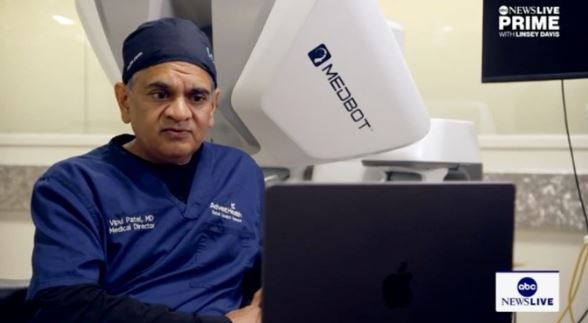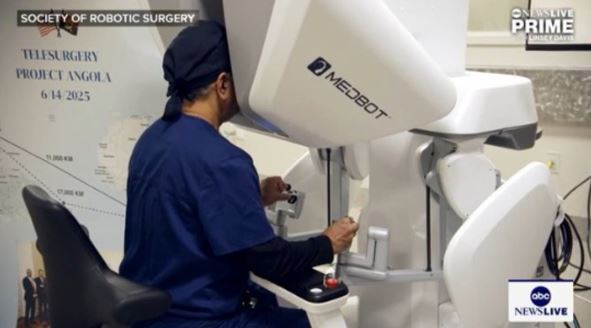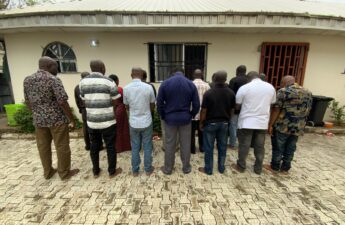A Florida doctor has used a robot to successfully carry out a surgery on a cancer patient in faraway Angola.
The medical director of the Global Robotic Institute at Advent Health in Orlando, Vipul Patel carried out the prostatectomy—surgery that removes part or all of the prostate—on Fernando da Silva from Angola, as reported by ABC News medical correspondent Dr. Darien Sutton on Tuesday, June 17.
The 67 year old cancer patient, Da Silva was diagnosed with prostate cancer in March, and in June, Patel used transcontinental robotic telesurgery to remove the cancerous tissue.
Patel told the Network that Prostate cancer is very prevalent in Africa, adding that, “In the past, they really haven’t monitored it well or they haven’t had treatments.”

The doctor stated the surgery was a long time coming, and it was a success.
“We’ve been working on this really for two years,” Patel said. “We travelled the globe, looking at the right technologies.”
Da Silva was the first patient in a human clinical trial approved by the Food and Drug Administration to test this technology.
Surgeons have used a multimillion-dollar robot to operate on patients using “enhanced visuals and nimble controls” before, ABC News reported, but they are often near their patients when operating the machine.
Patel used fibre optic cables to test the technology at a long distance from his patient. “There was no perceptible delay in my brain,” the doctor said.
His surgical team was in the operating room with Da Silva just in case they had to jump in.
“We made sure we had plan A, B, C, and D. I always have my team where the patient is,” the doctor said.
In case something went awry with the telecommunications, “the team would just take over and finish the case and do it safely,” he said.
Reflecting on the surgery, Patel called it “a small step for a surgeon, but it was huge leap for health care.”
He said the “humanitarian implications are enormous.”
“Internationally, obviously, there’s so many underserved areas of the world,” the doctor said, adding that rural communities in the U.S. could also benefit from the technology.
He continued: “Emergency room physicians will have technology that can be remotely accessible to surgeons, maybe even in the ambulance, where people can get remote interventions if they can’t make it to the hospital.”
Patel said he will submit the data he collected from the surgery to the FDA with the hopes that he can do more telesurgeries in the future.



